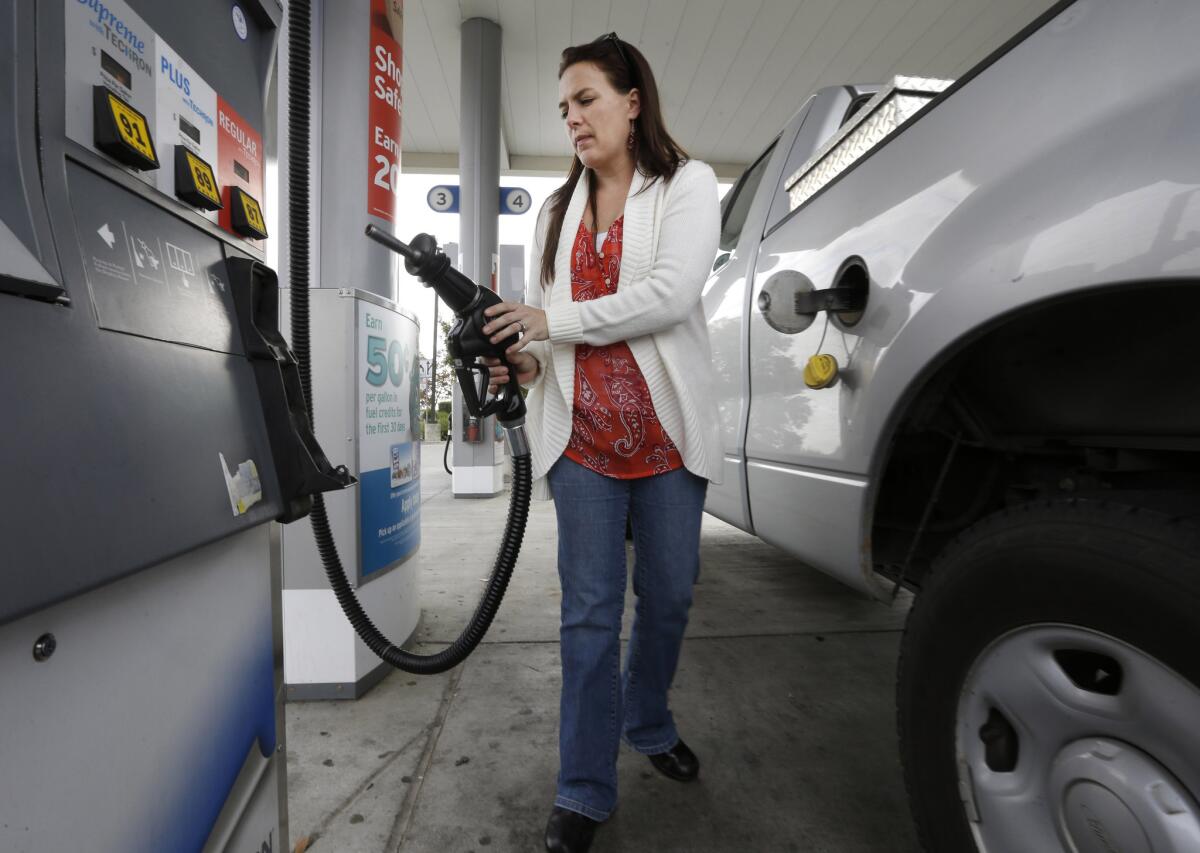Consumer prices plunge 0.7% on cheaper gas costs

A plunge in gas prices last month lowered consumer prices by the most in six years. But excluding the volatile food and energy costs, prices rose.
The Labor Department said Thursday that the consumer price index fell 0.7% in January, the sharpest drop since December 2008. Tumbling prices at the pump drove nearly all of the decline.
Core prices, which exclude food and energy, rose 0.2%. The cost of clothes, hotels and restaurants all rose.
Overall, consumer prices have slipped 0.1% over the last 12 months. It is the first yearly drop in five years. And over the last year, core prices have risen just 1.6%, below the 2% level the Federal Reserve considers optimal for a healthy economy.
Last month’s figures have some investors worried about deflation -- shrinking prices that could undermine wages and the value of real estate, stocks and other assets.
Short term, deflation can help the economy because it provides a direct benefit to consumers in the way of lower prices for goods and services.
Long term, however, lower prices could lead to lower corporate revenue and profits, triggering widespread wage cuts and layoffs. Japan, for instance, has struggled to escape a deflationary, slow-growth trap for more than two decades.
As it is, excessively low inflation is complicating the Fed’s decision on when to begin raising the short-term interest rate it controls. Most analysts think the Fed will start to raise rates from record lows in June or September. But persistently low prices could delay that decision.
Fed Chair Janet Yellen told Congress this week that she expects the effects of falling gas prices to fade in coming months, causing inflation to creep back toward the Fed’s 2% target.
Most economists agree. Paul Ashworth, chief U.S. economist at Capital Economics, expects core inflation to rebound to 2% by early next year.
“There is little danger that this temporary bout of falling energy prices will develop into a more insidious … deflation spiral,” Ashworth said.
Ethan Harris, global economist at Bank of America Merrill Lynch, says price declines driven by cheaper gas typically don’t cause deflationary spirals. Instead, lower gas prices free up more cash for Americans to spend, which tends to strengthen economic growth.
In addition, there are already signs that oil and gas prices have leveled off after collapsing nearly 60% from July through January.
Gas prices had fallen in January to an average of $2.03 a gallon nationwide, the lowest level in five years, according to AAA. But the average reached $2.33 on Wednesday, up 6 cents in just a week.
Oil prices topped $50 a barrel Wednesday, up from a low of $44 in January.
Other factors, particularly rents and hotel costs, are pushing up core prices. A measure of rents rose 0.2% last month. Hotel prices jumped 1.3%.
The vacancy rate for rental apartments fell to 7% at the end of last year, the lowest level in 25 years, according to Joseph Carson, U.S. economist for asset manager AllianceBernstein. That caused the average rent in 2014 to rise 3.4%, the sharpest increase in six years.
Associated Press was used in compiling this report.






